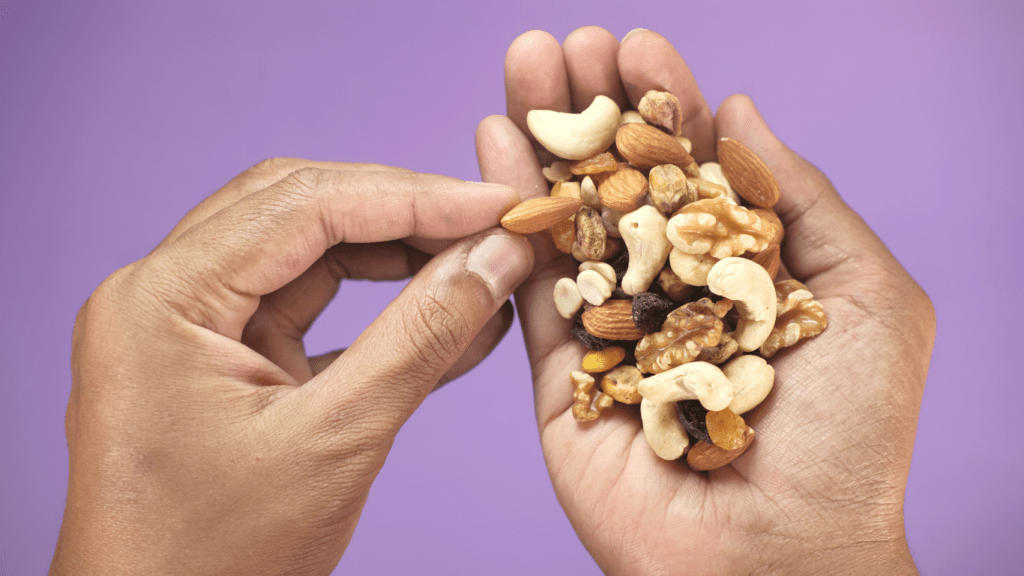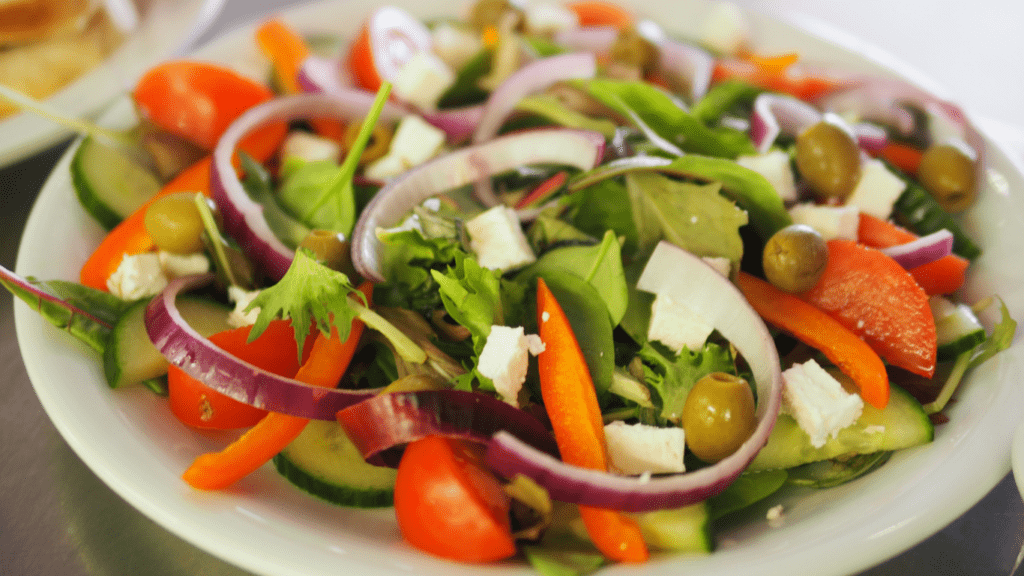As an athlete, fueling my body with the right nutrients is crucial for peak performance and optimal recovery. In the world of sports, meal planning goes beyond just satisfying hunger; it’s about strategic nourishment to enhance endurance, strength, and overall well-being.
In this article, I’ll delve into the science behind meal plans for athletes, focusing on how to optimize performance and expedite recovery through proper nutrition. Crafting a tailored meal plan can make a significant difference in an athlete’s training regimen.
From pre-workout fuel to post-exercise recovery meals, each bite plays a vital role in supporting muscle growth, replenishing glycogen stores, and reducing inflammation. By understanding the fundamentals of nutrition and meal timing, athletes can fine-tune their diets to meet the demands of their sport and achieve peak performance levels.
Understanding the Importance of Meal Plans for Athletes
Proper nutrition plays a vital role in an athlete’s performance and recovery. As an experienced blogger, I know that meal planning is more than just satisfying hunger. It involves strategically fueling the body to enhance endurance, strength, and overall well-being.
Tailored meal plans are crucial for athletes as they provide the necessary nutrients for muscle growth, glycogen replenishment, and reducing inflammation. By mastering the fundamentals of nutrition and meal timing, athletes can fine-tune their diets to match the specific requirements of their chosen sport.
Nutritional Requirements for Optimal Performance
When considering nutritional requirements for optimal performance as an athlete, it’s crucial to focus on both macronutrients and micronutrients to ensure the body gets the necessary fuel and support for peak functioning.
Macronutrients for Energy and Muscle Building
As an athlete, I prioritize consuming adequate amounts of macronutrients such as carbohydrates, proteins, and fats to fuel workouts and aid in muscle repair and growth. Carbohydrates are I’s main source of energy, especially for high-intensity activities.
I aim to include complex carbs like whole grains, fruits, and vegetables in my diet to sustain energy levels throughout training sessions and competitions. Proteins are essential for muscle repair and development. I make sure to incorporate lean sources of protein like chicken, fish, tofu, and legumes in my meals to support my muscles’ recovery process.
Healthy fats, including omega-3 fatty acids found in fish and nuts, are vital for my overall health and help reduce inflammation, benefiting my recovery and performance.
Micronutrients for Overall Health and Recovery
In addition to macronutrients, micronutrients play a crucial role in my overall health and recovery as an athlete. Key micronutrients include vitamins and minerals like vitamin C, vitamin D, calcium, and iron, which are essential for my immune function, bone health, and oxygen transport during exercise.
By ensuring I consume a variety of colorful fruits and vegetables, I can meet my micronutrient needs and support my body’s recovery processes, reducing the risk of injury and enhancing my performance on the field or in the gym.
Designing Effective Meal Plans for Athletes
When creating meal plans for athletes, it’s crucial to focus on optimizing performance and aiding in recovery. Tailoring meals to meet the specific needs of the individual athlete is key to achieving their maximum potential.
Pre-Workout Nutrition Strategies
For effective pre-workout nutrition, the focus should be on providing the body with the necessary fuel to optimize performance during training or competitions. It’s essential to consume a balanced meal that includes carbohydrates, proteins, and fats to sustain energy levels and enhance muscle function.
Post-Workout Recovery Meals
Post-exercise meals play a vital role in the recovery process by replenishing glycogen stores, repairing muscle tissue, and reducing inflammation. Including a combination of carbohydrates and proteins in post-workout meals can aid in muscle recovery and adaptation to training.
Hydration and Electrolyte Balance
Proper hydration and electrolyte balance are critical factors in optimizing athletic performance. Athletes should drink an adequate amount of water before, during, and after exercise to maintain hydration levels.
Including electrolyte-rich foods or drinks can help replenish lost minerals and support muscle function.
Meal Timing and Frequency
Strategic meal timing and frequency are essential components of a well-designed meal plan for athletes. Eating meals and snacks at regular intervals throughout the day can help maintain energy levels, promote muscle recovery, and optimize nutrient absorption.
Balancing nutrient intake before, during, and after workouts is essential for meeting the demands of training and competition.
Individualized Nutritional Needs
Recognizing that each athlete has unique nutritional requirements is crucial in designing effective meal plans. Factors such as training intensity, sport type, body composition, and personal preferences should be considered when tailoring meals to support optimal performance and recovery.
Monitoring and Adjusting Meal Plans
Consistently monitoring the athlete’s performance, energy levels, and recovery patterns can help in assessing the effectiveness of the meal plan. Adjustments can be made based on feedback and changes in training volume or intensity to ensure that the athlete is receiving the necessary nutrients to excel in their sport.
Meal Timing and Frequency for Athletic Performance
In optimizing athletic performance, meal timing and frequency play a crucial role in fueling the body effectively. Proper timing and frequency of meals can impact an athlete’s energy levels, muscle recovery, and overall performance.
I’ll delve into the essential aspects of meal timing and frequency for athletes to maximize their potential.
Timing of Meals
When it comes to enhancing athletic performance, timing meals strategically can make a significant difference. Ideally, I recommend consuming a balanced meal containing carbohydrates, proteins, and fats about 3-4 hours before a workout or competition.
This timing allows the body to digest and absorb nutrients efficiently to provide sustained energy during physical activity. For peak performance during the workout, a small snack rich in carbohydrates can be consumed 30 minutes to an hour before exercise.
This quick energy source helps maintain blood sugar levels and boosts performance without causing discomfort during physical exertion. Post-workout nutrition is equally crucial for recovery and muscle repair.
Consuming a combination of carbohydrates and proteins within 30 minutes to an hour after exercise helps replenish glycogen stores, repair muscle tissue, and promote recovery. This timing is optimal for maximizing the body’s ability to recover and adapt to the stresses of training.
Frequency of Meals
In addition to proper timing, the frequency of meals throughout the day is essential for athletes to maintain energy levels and support recovery. I recommend consuming smaller, balanced meals every 3-4 hours to sustain energy levels and optimize nutrient absorption.
Regular meals and snacks help prevent energy dips and provide a constant source of nutrients for the body. This consistent fueling pattern ensures that athletes have the necessary energy to perform at their best during training sessions and competitions.
By strategically timing and frequent consumption of balanced meals, athletes can support their performance goals, enhance recovery, and optimize their overall well-being. Finding the right balance in meal timing and frequency is key to unlocking the full potential of athletic performance.
Continuously monitoring and adjusting meal plans based on individual performance and training demands is essential to ensure that athletes receive the optimal nutrition required for success in their respective sports.
Implementing Recovery Nutrition Strategies
In optimizing recovery nutrition strategies, I focus on key principles that can enhance athletes’ post-exercise recovery and overall performance. Efficient recovery nutrition is crucial for refueling muscles, replenishing glycogen stores, and reducing inflammation after intense workouts.
It’s essential to prioritize nutrient-dense foods that aid in muscle repair and provide the necessary energy for optimal recovery. When implementing recovery nutrition strategies, I emphasize the following key components:
1. Protein-Rich Meals:
Incorporating protein-rich meals post-exercise is vital for muscle recovery and repair. Foods high in quality proteins, such as lean meats, fish, eggs, and plant-based sources like tofu or legumes, can support muscle growth and recovery after strenuous physical activity.
2. Carbohydrate Replenishment:
Replenishing glycogen stores by consuming carbohydrates after a workout is essential for restoring energy levels. Opt for complex carbohydrates like whole grains, fruits, and vegetables to sustain energy and promote glycogen repletion for improved performance in subsequent training sessions.
3. Hydration and Electrolyte Balance:
Maintaining proper hydration and electrolyte balance is critical for effective recovery. Adequate fluid intake, along with electrolytes like sodium and potassium, helps to rehydrate the body, regulate muscle function, and support overall recovery post-exercise.
4. Anti-Inflammatory Foods:
Including anti-inflammatory foods in post-workout meals can aid in reducing muscle soreness and inflammation. Foods rich in omega-3 fatty acids, such as salmon, walnuts, or chia seeds, as well as fruits like berries and vegetables like spinach, can help mitigate exercise-induced inflammation and promote faster recovery.
By incorporating these recovery nutrition strategies into their meal plans, athletes can optimize their recovery process, enhance performance, and support long-term athletic success. It’s crucial to tailor these strategies to individual needs and adjust based on training intensity and performance goals to maximize results.


